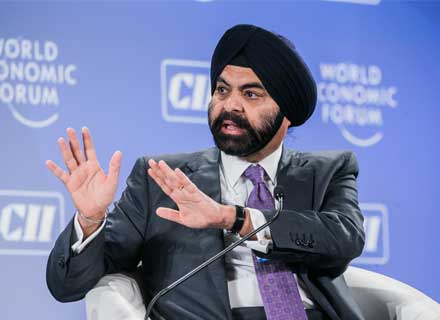The World Bank is an international organisation whose mission is to support poor countries’ economic development by offering money, guidance, and research. The bank primarily functions as a group that provides middle and low-income nations with developmental aid in an effort to combat poverty.
The World Bank has stated 17 goals as of 2022 that it hopes to accomplish by 2030. Their mission statement lists the top two goals. The first is to end extreme poverty by bringing the percentage of the global population that lives on less than USD 1.90 a day, below to 3%. The second is to increase overall wealth by increasing income growth in the poorest by 40% of every country in the world.
Understanding World Bank
The World Bank, apart from providing financial and technical support to countries, also views itself as a distinctive financial organisation that forms alliances to fight poverty and promote economic growth.
The institution also offers grants, low-interest loans, and zero-interest credits to eligible governments, in order to boost the economy of the nation. Global healthcare, governmental administration, infrastructure, and private-sector development are all aided by debt borrowings and cash infusions. The World Bank also exchanges information with various organisations, through technical assistance, research and analysis, and policy advice. For the public and private sectors, it provides guidance and instruction.
As the World Bank looks to reshape its goals, recently, it confirmed that Ajay Banga, an Indian-born American business executive will be its next president. He will replace David Malpass, who stepped down nearly a year early as he was clouded by questions over his climate stance.
Who is Ajay Banga?
- Ajay Banga was born in the Khadki cantonment of Pune, Maharashtra, India
- He completed his graduation in Economics from St. Stephen’s College, Delhi and MBA from the Indian Institute of Management, Ahmedabad
- Ajay Banga began his career as a management trainee with Nestle in 1981 and later joined PepsiCo and was involved in the launch of its international fast food franchises, including Pizza Hut and KFC in India
- In 1996, he joined Citigroup, where he briefly served as a debt collector and later in 2005 he was chosen to lead the bank’s international consumer operations.
- In 2008, Ajay Banga became Citigroup’s head of the Asia-Pacific region
- In 2009, he stepped down from Citigroup to join Mastercard as president and chief operating officer and less than a year he was promoted to the company’s CEO position
- In 2015, United States President Barack Obama appointed Ajay Banga to serve as a member of the President’s Advisory Committee for Trade Policy and Negotiations
- In 2020, he was elected chairman of the International Chamber of Commerce (ICC), succeeding Paul Polman
- In 2022, Ajay Banga assumed responsibilities at General Atlantic as vice chairman
- He was nominated by US President Joe Biden to lead the World Bank and in May 2023, the World Bank confirmed him as its 14th President
- Ajay Banga was felicitated with the Padma Shri by the Indian government in 2016 in the field of trade and industry and was also awarded the Foreign Policy Association Medal in 2012
- According to CNBC, Ajay Banga had a net worth of USD 206 million in 2022
We all have the potential: Ajay Banga
In an interview given to Tinkerviews, When asked about what he had learned from his first job at Nestle, Ajay Banga said, “I learned that we all have potential. We should always remember those who helped us and/or taught us something. Acknowledging good deeds is very important. One individual can make the difference. People make the difference, not the companies.”
“One person can make a difference and actually each one has the calibre. It is up to the individual how he uses his potential and for what purpose. None of the revolutions could have been ignited without someone who dared to stand for a cause and believed that a change is possible,” he said.
Ajay Banga said that one of the very best lessons he learned from his superior is “never take no for an answer, there is always a way to get to the right solution, if you apply your mind.”
Articulating Ajay Banga’s saying, the Tinkerviews mentioned in their article, “It does not mean to have a blind eye against the reality or refusing to see the facts. The point is, if you want to go ahead and the situation is not favourable, then find an alternative. Yes, there is always a way. Banga also suggests that by finding a way, he doesn’t mean that you need to compromise with what you believe in or your character.”

